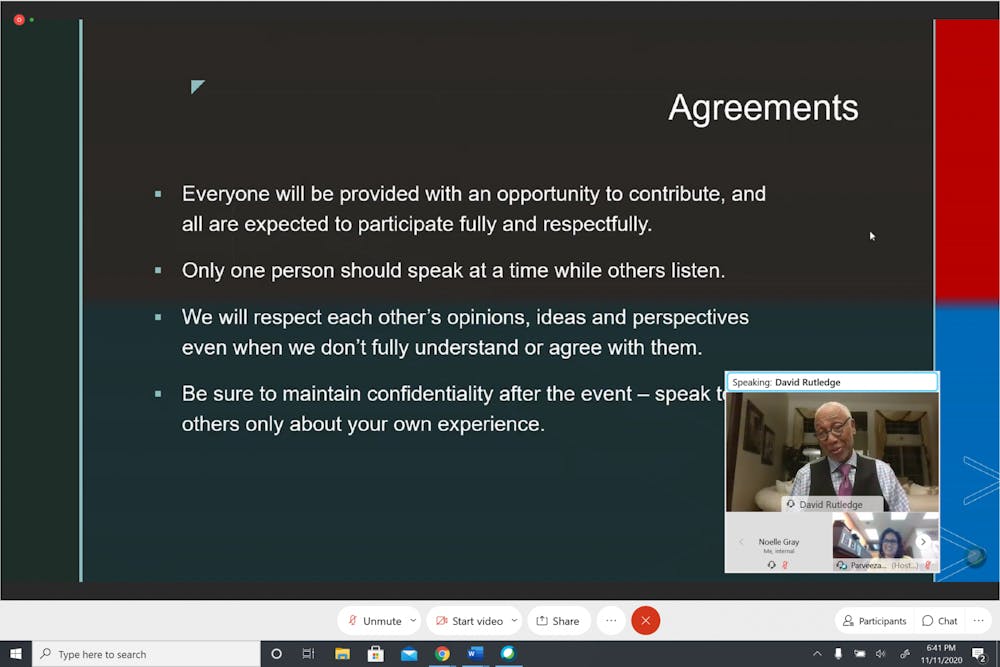Post-election panel discusses voter suppression and election results
Central Michigan University's Office of Diversity Education continued their fall 2020 series Conversations That Matter: “Post-Election Dialogue: Where Do We Go Next?” panel discussion that touched on voter suppression and the recent United States 2020 Presidential Election.
Griffin Endowed Chair in American Government and political science faculty member David Rutledge was the events featured speaker. Facilitators of the panel discussion included students, faculty and staff.
On Nov. 11, the Conversations That Matter event gave students the opportunity to discuss the 2020 Presidential Election.
Rutledge commenced the discussion by breaking down the electoral college and the subject of recounting votes and contesting the election.
"These people are called electors and they are selected by their parties, the Democrats put up a slate of electors as do the Republicans," Rutledge said. "There are 16 electors in this state, it equals the number of our Michigan Delegation."
Rutledge said there is a need for everyone to come together, regardless of the opposite aisles of the political sphere.
He posed the question, "Why can't we have differing philosophies, but still be able to talk civilly to each other about those philosophies and try to find common ground?"
The discussion then transitioned to breakout groups, where groups of three or four were asked three questions about their thoughts and feelings on the election.
Once the breakout groups ended, one member from each group shared the consensus their groups came to through the discussion.
A majority of the groups from the discussions discussed the importance of being open to change and multiple viewpoints. While a couple of groups expressed skepticism toward the uncertainty of what the future might hold and Joe Biden's approach to be colorblind.
Interim Chief Diversity Officer Stan Shingles, closed out the dialogue by encouraging the audience to provide feedback to the Office of Diversity Education and to attend more community-based discussions for the series, Conversations that Matter.




